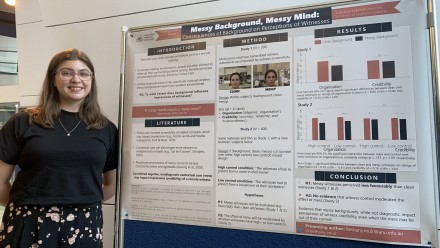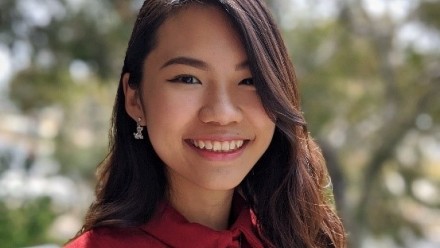Judy Slee Seminar Series: Bayesian Graphical Models of Anxiety and Belief Updating in the Classic Beads Task
Nicole is a first year PhD candidate in the Research School of Psychology. She completed a Bachelor of Psychology (Honours) in July 2019. Her PhD research examines the belief updating system in anxious individuals using Bayesian computational approaches. She is supervised by Dr. Yiyun Shou, A/Prof Bruce Christensen, and Dr. Junwen Chen.
The tendency to accept a hypothesis based on fewer than normal pieces of information (“Jumping-to-Conclusions” (JTC) bias) is a probabilistic reasoning bias commonly observed in clinical populations with delusions. This tendency can be attributed to a relatively low decision threshold and overweighting of a piece of evidence. Whilst some highly anxious individuals demonstrate JTC bias, the implications of findings remain contentious. The contention stems from a lack of understanding about how anxiety interacts with the two factors in belief updating. It remains unexplored as to whether anxious individuals deviate from rationality in belief updating just as much as the healthy population or are simply less “over-cautious” in gathering information. The present study adopts a systematic approach utilising a Bayesian graphical model to answer these questions. Based on the classic beads task, the model illustrates how a rational agent would update their prior belief upon receiving new information and how they would decide based on their belief. Then, we investigate the impact of anxiety on evidence weights in the model, and eventually how belief updating would change. These steps allow for comparisons between a rational response and those exhibited by both healthy and anxious populations. By clearly illustrating the influence of anxiety on evidence weights in the model, we can deepen the understanding of associations between anxiety and JTC bias. The properties of the model and its implications will be discussed.












